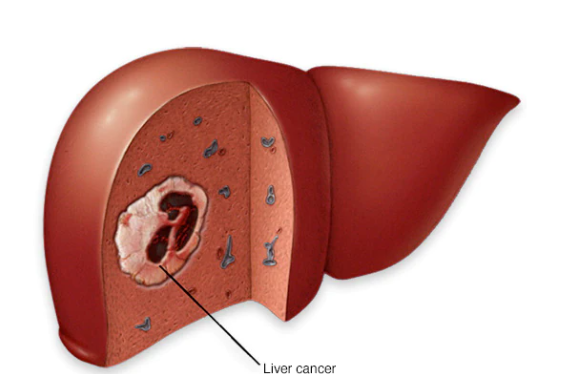- srushtigastro@gmail.com
- +91- 8073380392
LIVER CANCER

Liver cancer, also known as hepatocellular carcinoma (HCC), is a serious condition characterized by the abnormal growth of malignant cells in the liver. This disease poses significant health risks and challenges, but early detection and appropriate management can lead to improved outcomes and enhanced quality of life for patients. Understanding the benefits of timely intervention is essential in addressing liver cancer effectively.
Early Detection Improves Prognosis: Recognizing the signs and symptoms of liver cancer and undergoing regular screenings can facilitate early detection. When liver cancer is diagnosed at an early stage, treatment options such as surgery, liver transplantation, ablation therapy, and targeted drug therapies are more likely to be effective, leading to better prognoses and increased survival rates.
Multimodal Treatment Approaches: Liver cancer treatment often involves a combination of therapies tailored to the individual’s specific condition. These may include surgery to remove tumors, chemotherapy, radiation therapy, transarterial chemoembolization (TACE), radiofrequency ablation (RFA), immunotherapy, and targeted drug therapies. A multidisciplinary approach to care ensures comprehensive management of the disease and maximizes treatment effectiveness.
Prevention of Disease Progression: Timely intervention and appropriate treatment can help prevent the progression of liver cancer, reducing the risk of metastasis (spread of cancer to other organs) and improving overall prognosis. Close monitoring and adherence to treatment plans are crucial in controlling the disease and minimizing its impact on the patient’s health.
Management of Symptoms: Liver cancer and its treatments can cause symptoms such as abdominal pain, jaundice, fatigue, loss of appetite, and weight loss. Effective symptom management through medications, supportive care services, and lifestyle modifications can improve the patient’s comfort and quality of life during treatment.
Enhanced Liver Function: Some treatment options for liver cancer, such as surgery or ablation therapy, aim to preserve as much healthy liver tissue as possible while targeting cancerous cells. This can help maintain adequate liver function and prevent complications associated with liver failure, contributing to better overall health outcomes.
Psychosocial Support: Dealing with a diagnosis of liver cancer can be emotionally challenging for patients and their families. Access to psychosocial support services, including counseling, support groups, and educational resources, can help individuals cope with the emotional and psychological aspects of the disease, fostering resilience and improving overall well-being.
Promotion of Healthy Lifestyle Choices: Adopting healthy lifestyle habits, such as maintaining a balanced diet, exercising regularly, avoiding excessive alcohol consumption, and quitting smoking, can help reduce the risk of liver cancer development and improve treatment outcomes. Education and support in making lifestyle changes are integral parts of comprehensive liver cancer care.
By emphasizing early detection, personalized treatment approaches, symptom management, psychosocial support, and lifestyle interventions, healthcare providers can optimize outcomes and enhance the quality of life for individuals diagnosed with liver cancer. Empowering patients with knowledge and resources is key to navigating the challenges associated with this disease and promoting overall health and well-being. We have the best Liver Cancer Doctor in HSR Layout for the best Liver Cancer Treatment in HSR Layout. Contact us today.
Empowering assistance, right when it matters. We’re here to lend a hand whenever you need it.

Call : +91- 8073380392
srushtigastro@gmail.com
Srushti Gastro & liver Clinic 186, 165, 9th Main Rd, Sector 6, HSR Layout, Bengaluru, Karnataka 560102